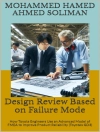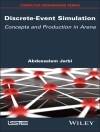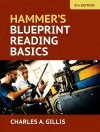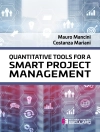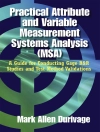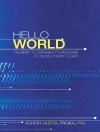This book features a collection of high-quality research papers presented at the International Conference on Tourism, Technology and Systems (ICOTTS 2023), held at Anáhuac University, Bacalar, Mexico, from 2 to 4 November 2023. The book is divided into two volumes, and it covers the areas of technology in tourism and the tourist experience, generations and technology in tourism, digital marketing applied to tourism and travel, mobile technologies applied to sustainable tourism, information technologies in tourism, digital transformation of tourism business, e-tourism and tourism 2.0, big data and management for travel and tourism, geotagging and tourist mobility, smart destinations, robotics in tourism, and information systems and technologies.
表中的内容
Strategic management of cultural projects – CIM Douro training.- Effects of Internet Access on Tourist Consumption in Mexican Households.- Enhancing Tourist Experiences: Integrating Chat GPT and 360 VR Videos in Tourism and Tourist Psychology.- Residents’ perceptions of sustainable tourism development in an emerging destination: a factor-cluster approach.- Data Science in Supporting Hotel Management: application of predictive models to Booking.com guest evaluations.- Organizational Commitment: The role of Organizational Happiness and Quiet Quitting.- Proposal for a Technological Thematic Concept for the Trays Festival Museum.- The Impact of Corporate Governance on Financial Performance: Study for Portuguese Hotel Companies.- The influence of the senior tourist profile on the assessment of the dimensions of well-being and quality of life .- Experiences of Backpackers: an overview of publications.- Importance–Performance Analysis of Oleotourism experience.- Present and Future Digital Media Experiences to Support Travellers’ Decision Process During Online Accommodation Booking: A Systematic Literature Review and Bibliometric Analysis.- Motivating Factors in Choosing a Wine Tourism Destination and Its Impact on Territorial Marketing Policies.- Financial impact of covid-19: perspective from the hospitality and restaurant industry.- The Dynamics of Participant Engagement in a Food Festival: The Soup Congress case in Tomar.- Proposal for the creation of a MOOC on military tourism.- Cross-border tourism: a residents’ perspective of the Iberian Meseta Reserve.- The impact of work-life conflict on employees’ emotional well-being and the adoption of quiet quitting – A study case applied to the Portuguese hospitality industry.- Reviving the Templar Tale: Proposal for the creation of an immersive experience through the Templar Heritage of Tomar.- Business Intelligence Tools to Improve Business Strategy.- Technology towards Luxury Brands: preliminary insights on fashion tourism, metaverse and non-fungible token (NFT).- Applying the Importance-Performance Matrix to the Podence Carnival Festival.- Nutrition Software to the Management and Support of Health and Wellness Tourism: An Approach.- Backpackers’ space-time behaviour in a world heritage City – Porto.- Environmental corporate social responsibility (ECSR) in a price-set competition between private and state-owned hotels.- Tourist Technology Satisfaction: Scale Development and Validation .- Dialogic communication and dialogic loop principle in official websites of tourism – hospitality .- A Fuzzy ELECTRE method to model the risk in credit products for financing tourism experiences.- How wine information seeking and event participation impact knowledge and determines the purchasing behaviour?.- The Role of Sociodemographic Characteristics on the Journey from Brand Experience to Brand Love and Loyalty – Porto..- Perception of Risk and Identification of Security Measures when visiting Cultural Heritage.- Visiting Porto through the eyes of Eugénio de Andrade.- The Perception of Tourists Regarding the Importance of Influencers in Shaping the Image of a Tourist Destination: The Case of Melgaço (Portugal).- Social Media and the growth of E-Commerce – Multiple case studies: Musa Makeup and CRU Ecoliving.- Improving accessibility as a strategy for social sustainability in tourism supply.- Fashion as an economic sustainability indicator in tourism destinations’ governance through business participation.- Technology applications in the competitiveness of tourism destinations.- Events Tourism and Hospitality Marketing.- Entrepreneurship and COVID 19: The entrepreneurial challenge in a global pandemic.- Educational Practice: The Domain of Curricular Autonomy (DCA) at Fontes Pereira de Melo School..- Societies, ICT and Higher Education in the 21st Century: Reflections and Proposals.- The Importance of Digital Marketing in Hospitality: The Case of Hotel Fafense.
关于作者
João Vidal de Carvalho is an associate professor at the Institute of Accounting and Administration of Porto, Polytechnic University of Porto (Portugal), and post-doctorate in Technologies and Information Systems from the University of Coimbra (Portugal). He has done Ph.D. in Information Systems and Technology from the University of Santiago de Compostela (Spain), M.Sc. in Information Technology Management from the University of Minho (Portugal), and Bachelor in Computer Science. He is the vice director of the CEOS.PP Research Center—Center for Organizational and Social Studies of the Polytechnic of Oporto and a member of LIACC Artificial Intelligence and Computer Science Laboratory—FEUP. He is a member of the Iberian Systems and Information Technology Association (AISTI), effective member of the ISCAP/Polytechnic of Porto Skills Recognition/Certification committee, and editor-in-chief of the Journal of Information Systems Engineering and Management (JISEM). António Abreu is anassociate professor at the Higher Institute of Accounting and Administration of Porto, Polytechnic University of Porto, and post-doctorate in Information Technologies and Systems, at the University of Coimbra, Department of Computer Engineering of the Faculty of Sciences and Technology of the University of Coimbra. He has done Ph.D. in Software Engineering based on reusable components with human-machine interface applications at the University of Vigo. He is currently a lecturer in the scientific area of information systems at the Instituto Superior de Contabilidade e Administração do Porto/Politécnico do Porto, ISCAP/PPorto. He is an integrated researcher at the Research Centre CEOS.PP—Centre for Organizational and Social Studies of the Polytechnic of Porto. He is an editor-in-chief of the Journal of Information Systems Engineering and Management (JISEM).
Dália Liberato has done Ph.D. in Tourism Management and Planning and Master’s in management and Planning of Inland and Health Tourism from the University of Vigo (Spain). She is an associate professor at the Tourism and Leisure Department of the School of Hospitality and Tourism (Polytechnic University of Porto), where she teaches several curricular units in tourism at undergraduate and master levels. Currently, she coordinates the Tourist Activities Management degree in the same school (ESHT-P.PORTO). She supervised and co-supervised several M.Sc. dissertations and Ph D theses. She is also involved in applied research and consultancy projects in Tourism and Leisure and is a member of organizing and scientific committees of international conferences. She is the author or co-author of more than 50 book chapters and articles published in international journals and international conference proceedings, indexed by Scopus and/or Web of Science. José Angel Díaz Rebolledo has Master’s in Economic Management and Public Finance from the University of Birmingham, England. He has specialized in two lines ofwork: development of the tourism sector and supervision, regulation and development of financial systems. In his most recent assignment, he has worked in the academic sector as the director of the Faculty of Tourism and Gastronomy at the Universidad Anahuac. He was also a general director of destination management at the Ministry of Tourism where he designed and implemented the reengineering of the Pueblos Mágicos programme. He also served as the director of the Centre for Research and Tourism Studies of the Tecnológico de Monterrey, during which time he implemented and was in charge of the information system ‘Perfitur’ as well as its publication.


